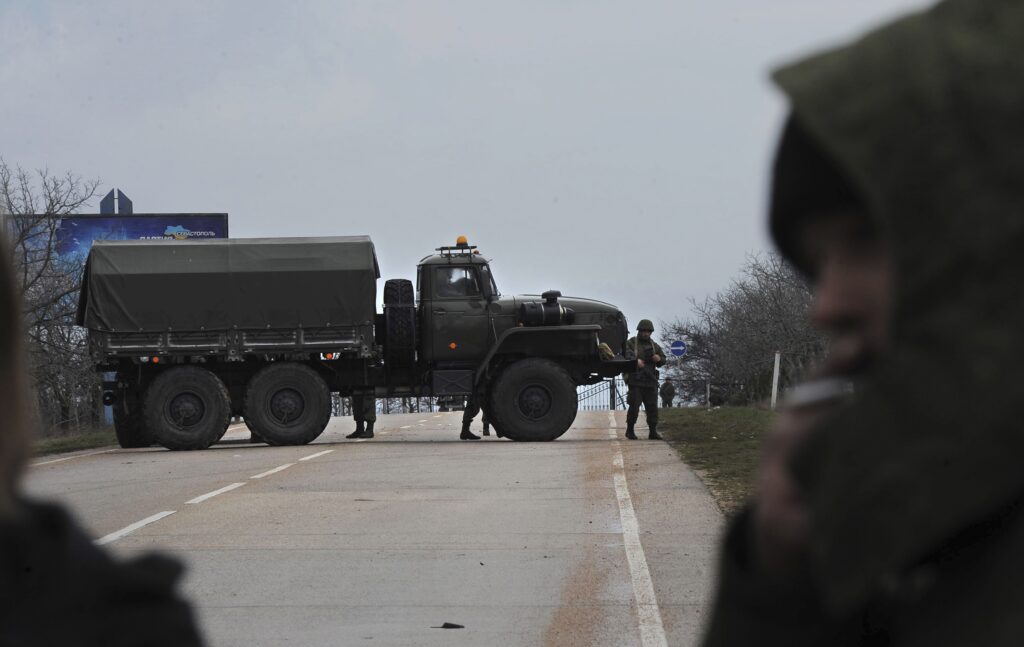After four months of near-total siege by Israel, people in Gaza are starving. The United Nations says at least 1 in 3 people are going multiple days without eating, and death from hunger is on the rise. The post ‘We are starving’: Hunger crisis deepens in Gaza appeared first on The World from PRX.
For the past four months, Ahmed Abu Amr has been making the same long trek to aid distribution points in the Gaza Strip.
Abu Amr’s journey starts at midnight. He walks from northern Gaza, where he lives with his family, to the south.
He walks for hours, then camps at the aid site, along with hundreds of other people desperate for food.
They wait, sometimes eight to nine hours, for sacks of flour to be distributed.
He’s among the population of Palestinians in Gaza facing starvation after four months of near-total siege by Israel. The United Nations says at least one in three people are going multiple days without eating, and death from hunger is on the rise.
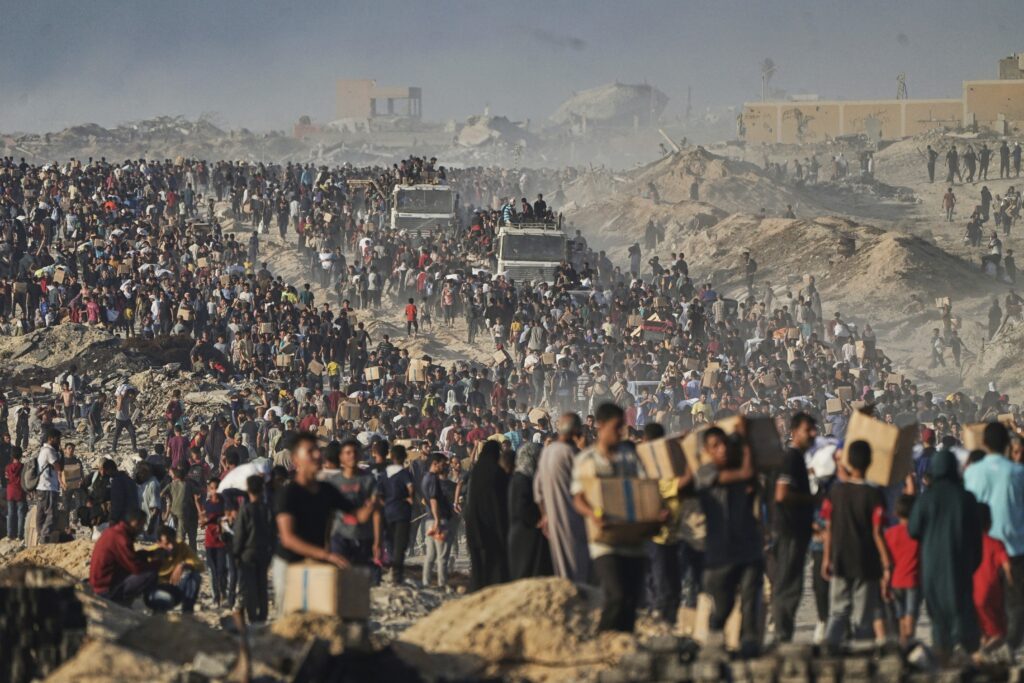
“Every day I try to get a little food or a little water, but I haven’t gotten anything yet,” Abu Amr said.
And the same scenario happens every time. As soon as they start handing out goods, there’s a rush. Then, guards start shooting in their direction and they have to run.
Abu Amr usually returns home empty handed.
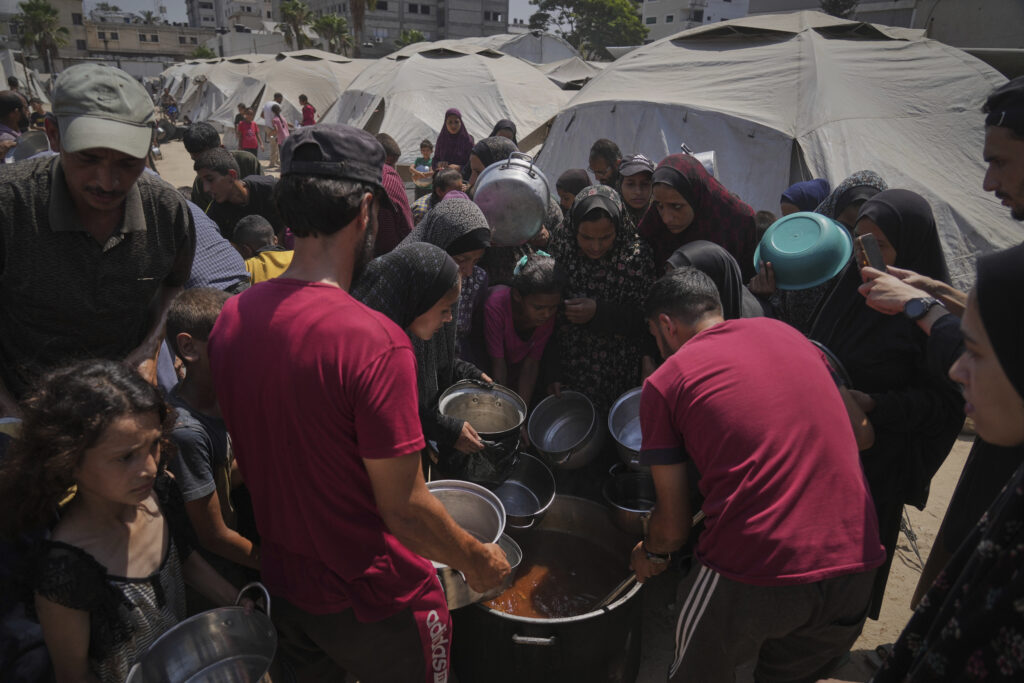
“Yesterday, 30 people were killed in front of my eyes,” he said. “I was very tired. We’re hungry, do you understand? I just want my kids to eat.”
Abu Amr said he hasn’t eaten in days. He no longer remembers what fruit tastes like. Chicken, eggs, cheese — they’re just memories now.
The hunger in Gaza is leaving its mark on the tiny bodies of babies. A journalist shared a video of a baby named Mohammed. He whimpered while lying on a hospital bed. His skin clung tightly to his bones. His eyes seemed enormous for his hollow face.
He’s one of many children now fighting for survival.
“Children are thin and lethargic, not running around and playing like we’d expect,” said Dr. Joanne Perry of Doctors Without Borders in northern Gaza.
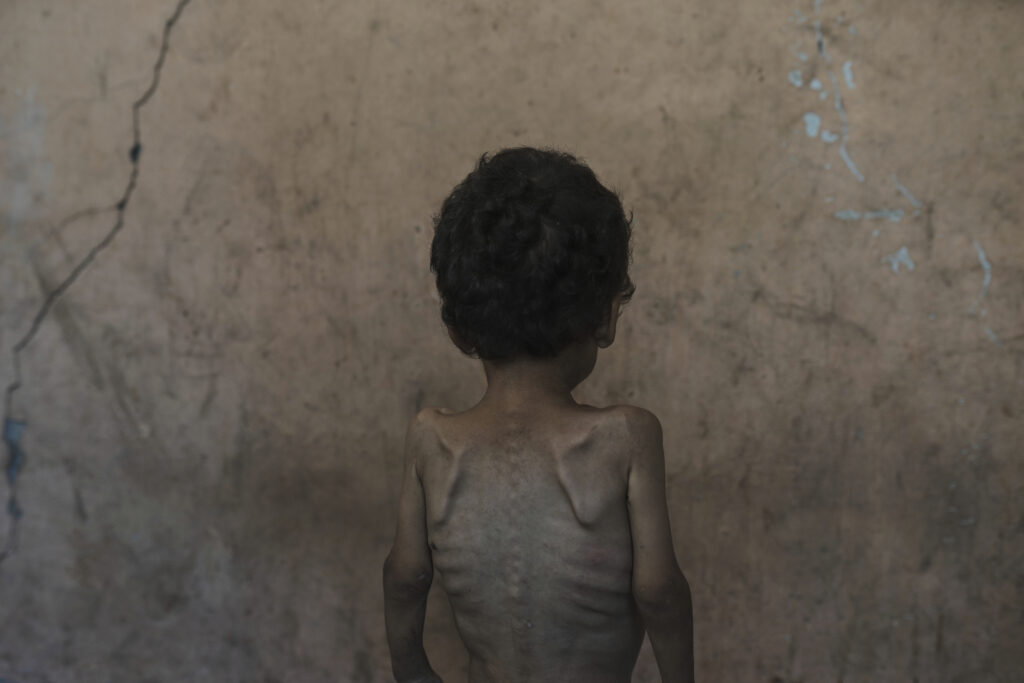
Roughly 10% of children under five are now malnourished, as are pregnant and breastfeeding mothers, according to Perry.
“This is an incredible amount of people if you consider the population of Gaza is just over 2 million,” she said.
Even when children receive therapeutic supplements, it’s not always enough. Mothers are forced to share what little they have between all their hungry children.
This has led to a rise in the number of children dying.
“What we are seeing now is like nothing I have ever seen before,” said Rachel Cummings with Save the Children.
Her team has food and medical supplies that could help, but they will only last for some five to six weeks. As the number of people in need grows, so does the need for more supplies, she explained.
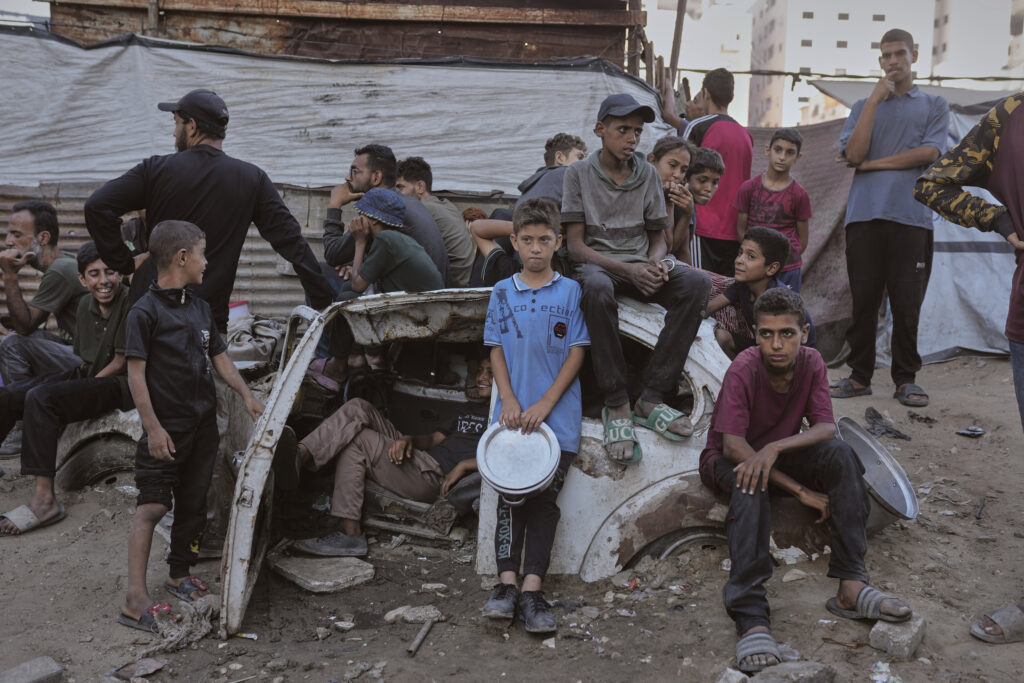
“Supplies are all waiting to come in,” Cummings added. “But as of yet we haven’t had clearance [from Israel] for those supplies to enter Gaza. More people, especially children will die, if more aid doesn’t get through.”
Alex de Waal, a global famine expert with the World Peace Foundation, also said this situation is unlike anything he’s seen before.
“We have not seen this happen in a place where just a few miles away, international agencies have the resources and the plan to help, but are being blocked,” he said.
He added that the current aid system is not just dangerous, but humiliating and dehumanizing.
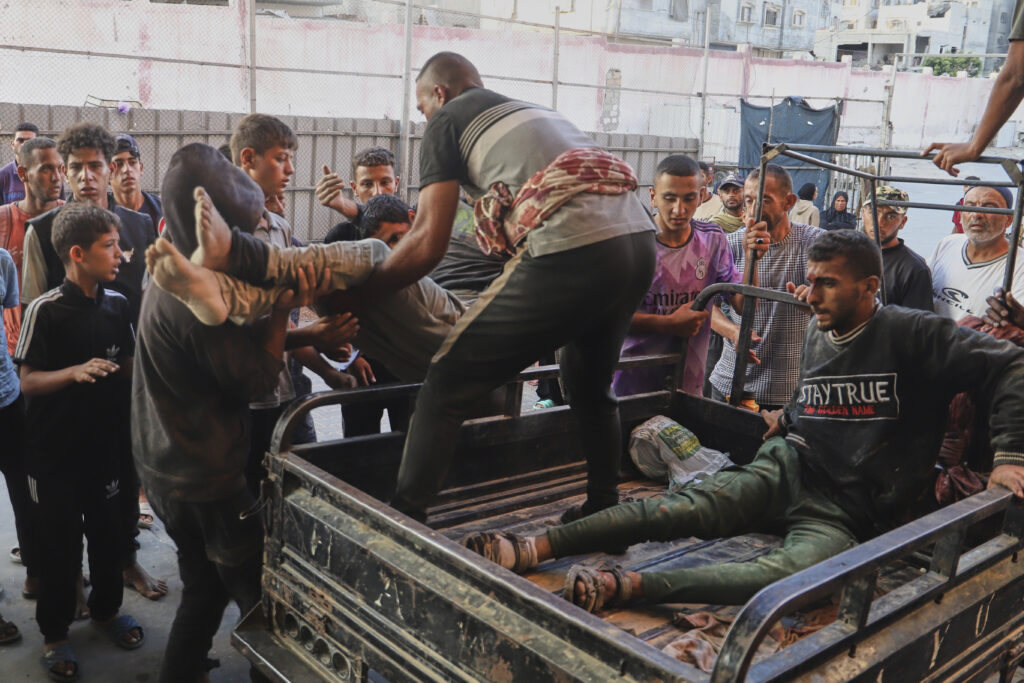
The Gaza Humanitarian Foundation, run by Israel and the US, has come under scrutiny for the way it operates. At least 1,000 people have been killed while trying to get aid, according to the Gaza Health Ministry.
This week in Tel Aviv, Israelis marched in protest of the conditions in Gaza. They held up posters of starving children and carried sacks of flour on their shoulders.
“Standing together against starvation,” read one sign.
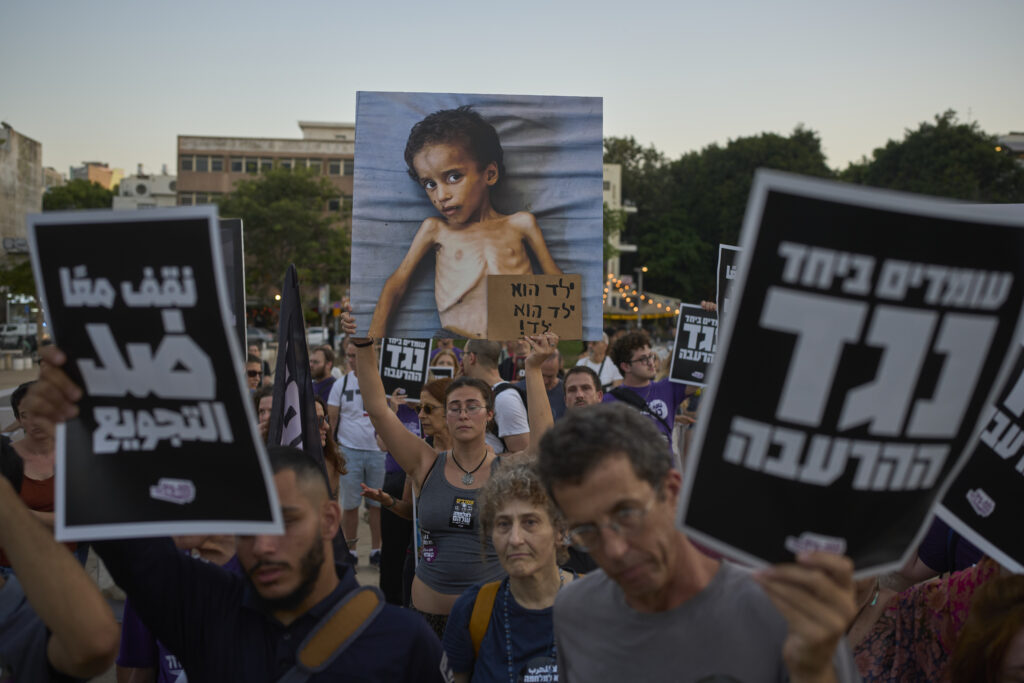
More than 100 aid organizations and rights groups have called on Israel to lift the restrictions. Israel says it has to control aid because Hamas steals it and uses the money to finance its military activities.
No aid distribution is perfect, explained Alex De Waal.
“The idea that one would starve an entire population, more than a million children, because of some as yet unverified incidents, I think speaks to an intent that is not a humanitarian intent,” he said.
Michael Fakhri, the UN’s special rapporteur on the right to food, said that an immediate ceasefire is needed to end the suffering in Gaza.
But the US continues to veto UN resolutions.
Fakhri says there are other alternatives.
“When any country vetoes a resolution that is necessary for global peace and security, then the [UN] General Assembly has the authority to call for peacekeepers to accompany humanitarian convoys to enter Gaza regardless of Israel’s position,” he explained.
Countries can also implement the arrest warrants that the International Criminal Court has issued for Israeli Prime Minister Benjamin Netanyahu and former Defense Minister Yoav Gallant, Fakhri added. They should also place economic and political sanctions on Israel.
The impact of starvation on a population goes beyond the immediate moment, he said.
“The social trauma that stays with the community lasts for generations. It is one of the most traumatic experiences a people can go through,” he explained.
He added that for the children who do survive this, the damage, both physical and psychological, will last a lifetime.
The post ‘We are starving’: Hunger crisis deepens in Gaza appeared first on The World from PRX.





